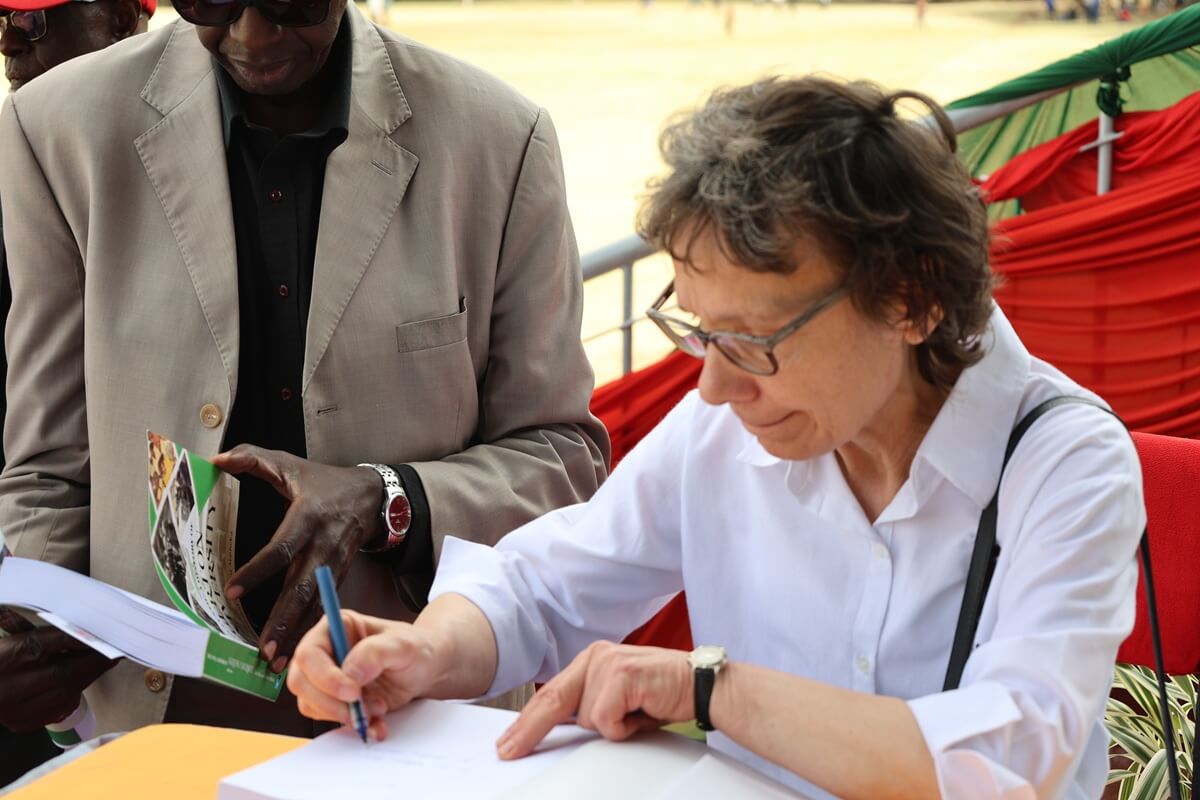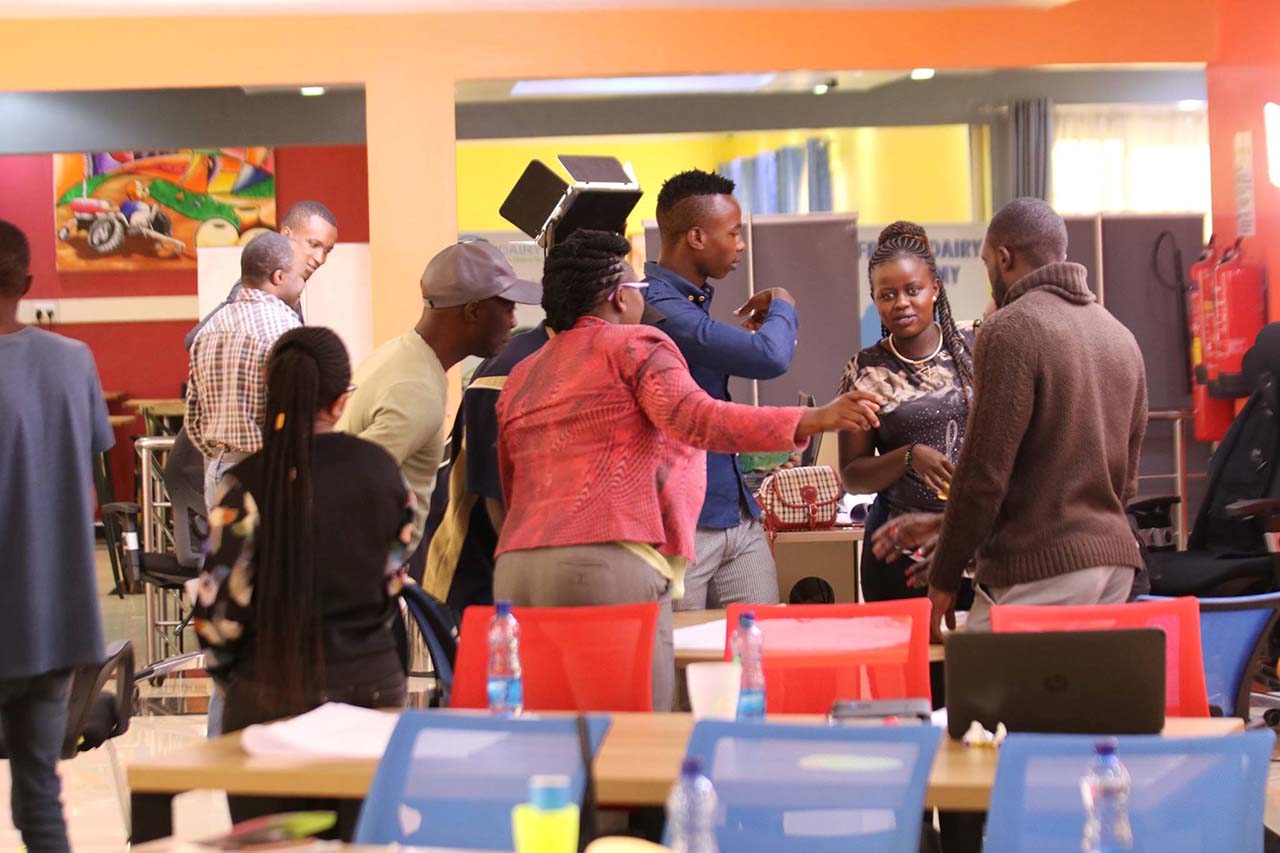Egerton University in collaboration with Michigan State University (MSU), United States International University-Africa (USIU), National Cooperative Business Association CLUSA International (NCBA-CLUSA) and the National Youth Bunge Association (NYBA) will connect youth through social and economic opportunities through the USAID funded USAID Empowered Youth Program. The team brings on board expertise in youth engagement, gender equality, research, community-led development, entrepreneurship, education, innovative technologies, and workforce development needed for program execution
The USAID Empowered Youth Program presents sustainable approaches of youth empowerment. Despite billions in resources invested in Kenyan youth empowerment initiatives, youth still face significant rates of unemployment, limited social and economic opportunities, and major challenges surrounding their livelihoods and well-being. This is due to micro and macro-level challenges that render youth empowerment initiatives ineffective.
Appreciating these challenges and acknowledging the strategic role played by youth in development informed the need for interventions targeted at connecting youth through social and economic opportunities. The USAID Empowered Youth Program is a 5-year Program and targets youth between ages 18 -24 and adolescent girls aged 15-19 as the primary focus of empowerment initiatives. The USAID Empowered Youth Program is a USD 15 Million USAID-funded Program that is executed in 26 Counties in Kenya. For the first 5 years, the Program will focus on the youth in 6 high-touch Counties (Isiolo, Kakamega, Kisumu, Nakuru, Kiambu, and Mombasa) with some activities in the other 20 counties.
Prof. Alexander K. Kahi who will direct the implementation of the Program at Egerton University said, “The core of activities of the USAID Empowered Youth Program and design implementation are co-led, co-owned, and co-managed with youth”.
Implementation of the Program started on 27th July 2021 and several activities have been done including a kick-off workshop with USAID, preparation of workplans, Activity, Monitoring, Evaluation, and Learning Plan (AMELP), Environmental Mitigation and Monitoring Plan (EMMP) and Grants Manual. USAID through the USAID Empowered Youth Activity will provide resources to the tune of USD 2.5 Million as innovation and research grants to design and test innovations led by youth and youth-serving organizations/networks that empower youth. The Program will be officially launched on 4th November 2021. The Program has three focal areas where it purposes to translate into meaningful interventions to youth. These focal areas are:
- Increasing youth economic prospects,
- Building the capacity of Kenyan Higher Education Institutions (HEIs), &
- Strengthening youth-serving systems.
Egerton University has longstanding success in establishing interventions that increase youth economic prospects and build the capacity of HEIs. In collaboration with USIU and NCBA-CLUSA, Egerton University is mandated to strengthen and increase youth economic prospects by connecting them to relevant, stakeholder-driven, integrated skills training and job placement programs linked to industry needs in high-growth sectors. It also seeks to offer youth entrepreneurial and business start-up assistance and increased access to financial services.
Through the successful training models employed at CoELIB, Egerton University will strengthen the capacity of Kenyan HEIs to link training to youth economic opportunities; develop meaningful collaborative partnerships among key actors in youth development; effectively communicate across institutions; and take collective action to innovate, demonstrate, test, and scale new or improved ideas and/or practices that address the needs of youth. CoELIB will offer incubation and acceleration of youth-led startups and train and mentor youth through their respective units on sustainable business models and best practices. CoELIB’s successful African Dairy Academy will expand its scope beyond dairy to the entire Kenya food system through a new African Academy of Agriculture Apprenticeships and Innovation, which will target youth enrolled at HEIs, TVETs, secondary schools, and youth who have left the formal educational system, with the goal of reaching youths directly through apprenticeship placements and training indirectly through workshops and exhibitions.
CoELIB will host a new Kenya Youth Expert Program (KYEP) that will offer students in fields with high growth potential the opportunity to work closely with experienced mentors to create tailored learning experiences before their short-term placement in domestic or international institutions. To help youth in the sports and in the creative industries tap into their potential, CoELIB will also implement a Talent and Sports Program that will train them on how to create revenue streams. Gender training and community outreach for adolescent girls and women will be conducted.
To strengthen youth-serving systems, USAID Empowered Youth will ensure increased investments in youth programs in select counties; increased partnerships with youth organizations, the private sector, and HEIs that train and support youth; and it will regularly involve the youth in key county-level decisions. For the success and long-term sustainability, the 5-year Program uses a mix of strategic and technical approaches that include a strong collaborating, learning, and adapting (CLA) cycle and a Quadruple Helix Innovation Platform (QHIP) to strengthen collaborations among HEIs, the private sector, county governments, and youth networks.
As a result, youth will be mobilized and engaged, the private sector will be engaged, there will be evidenced scaling up in low-touch counties, Information, Communication, and Technology ICT penetration will increase, and long-term sustainability - through inspiring a culture of learning, continuous improvement, and local ownership - shall be attained.








